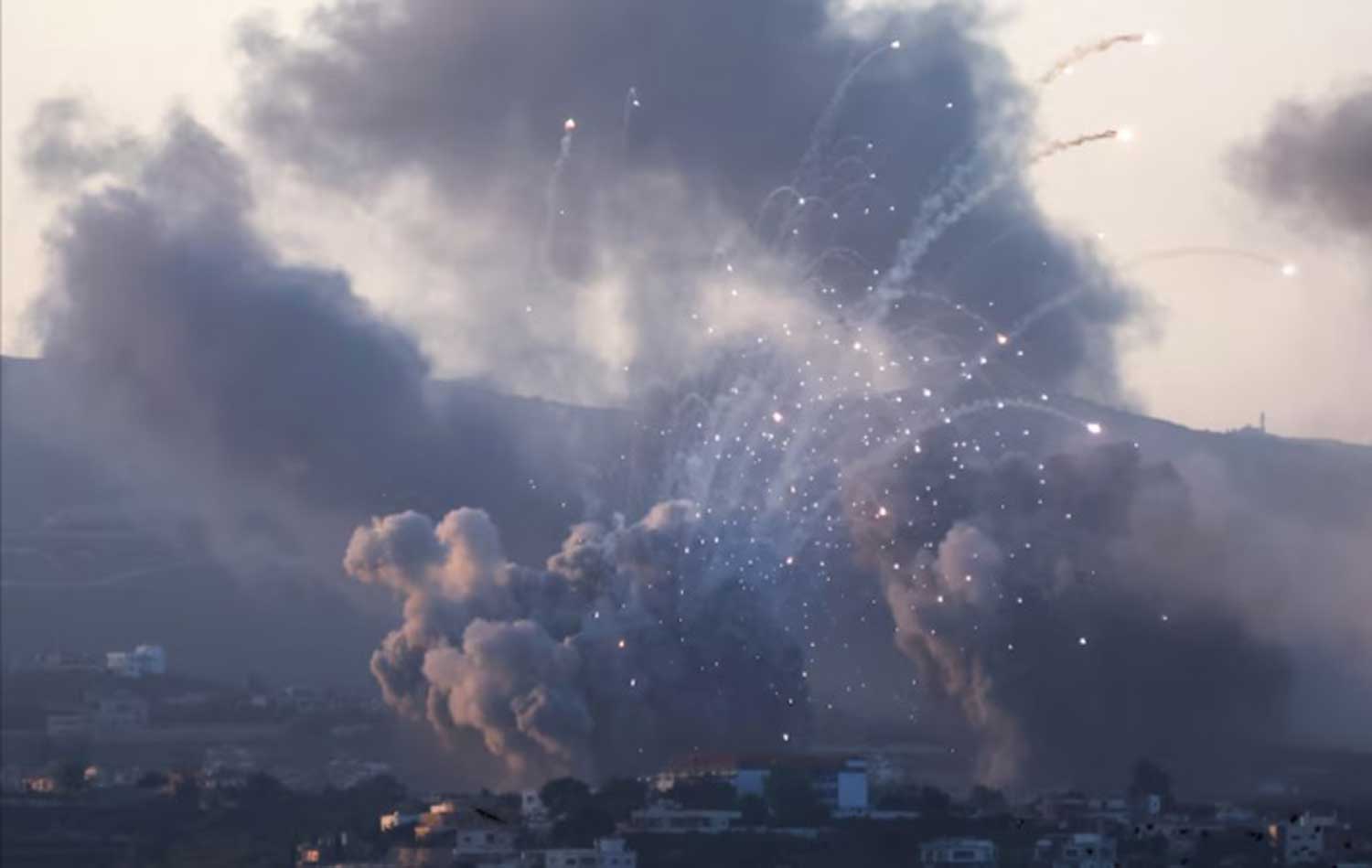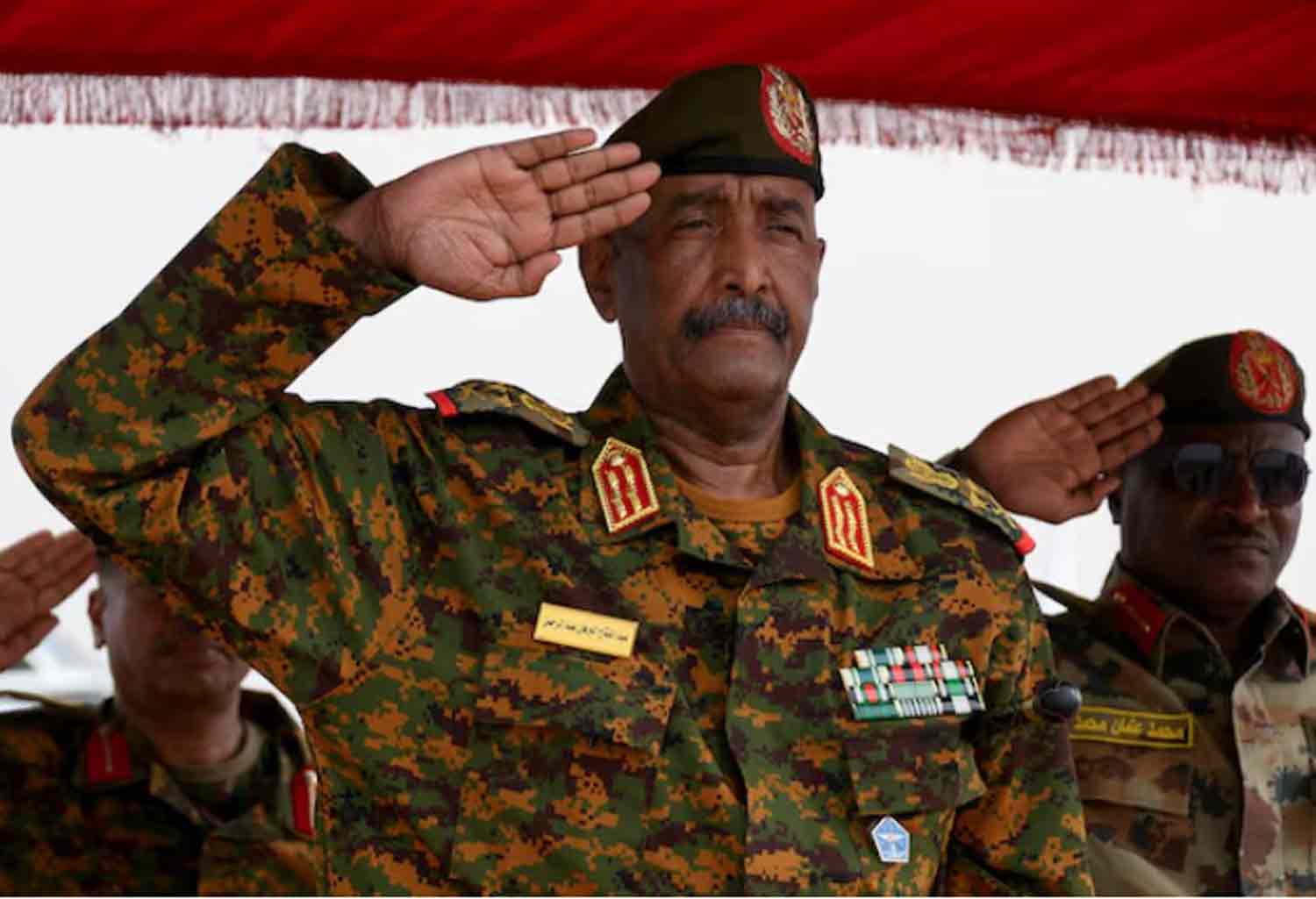Israeli Foreign Minister Israel Katz firmly dismissed calls for a ceasefire with Hezbollah on Thursday, following requests from the United States and France for a 21-day pause in hostilities that have resulted in numerous casualties in Lebanon and heightened concerns about a potential ground invasion.
Katz stated, “There will be no ceasefire in the north. We will continue to combat the Hezbollah terrorist organization with all our strength until we achieve victory and ensure the safe return of northern residents to their homes,” via a post on the social media platform X.
His remarks extinguished hopes for a rapid resolution, despite Prime Minister Najib Mikati’s earlier optimism regarding the possibility of a ceasefire in Lebanon, where hundreds of thousands have been displaced in search of safety. The ongoing conflict, the most intense in nearly twenty years between Israel and the Iran-aligned Hezbollah group, has sparked fears of a renewed Israeli ground offensive along the Lebanese-Israeli border.
Hezbollah has been in conflict with the Israeli military since its establishment by Iran’s Revolutionary Guards in 1982, aimed at countering an Israeli invasion of Lebanon. Over the years, it has become Tehran’s most formidable proxy in the Middle East.
In response to escalating tensions, the United States, France, and several allies have called for an immediate 21-day ceasefire along the Israel-Lebanon border, while also advocating for a ceasefire in Gaza. This call followed extensive discussions at the United Nations on Wednesday.
Israeli Prime Minister Benjamin Netanyahu, en route to New York for a United Nations address, stated that he had not yet responded to the ceasefire proposal but had ordered the military to continue operations. Hardline members of his government insisted that Israel should reject any ceasefire and maintain its offensive against Hezbollah.
Israeli airstrikes overnight targeted approximately 75 Hezbollah sites in the Bekaa Valley and southern Lebanon, including weapons storage facilities and launchers prepared for use, according to the Israeli military on Thursday.
In a recent airstrike, at least 23 Syrians, predominantly women and children, lost their lives when Israel targeted a three-story building in the Lebanese town of Younine, as reported by the town’s mayor, Ali Qusas. Lebanon currently hosts around 1.5 million Syrians who have fled the civil war in their home country.
The Israeli military reported that numerous Hezbollah targets were struck, including militants, military installations, and arms depots, across various locations on Thursday morning.
Additionally, around 45 projectiles were launched from Lebanon towards the western Galilee region, with some intercepted and others landing in uninhabited areas, according to the Israeli military.
Israel expanded its airstrikes in Lebanon on Wednesday, resulting in at least 72 fatalities, as compiled from statements by the Lebanese health ministry, according to Reuters.
The ongoing conflict has raised concerns among neighboring countries regarding the safety of their citizens residing in Lebanon. According to a source from the Turkish defense ministry, Turkey is preparing for the potential evacuation of its citizens and other foreign nationals from Lebanon.
Israeli Prime Minister Netanyahu reiterated his commitment to ensuring that the tens of thousands of Israelis evacuated from northern border regions can safely return home. Finance Minister Bezalel Smotrich, who leads one of the two nationalist-religious factions within Israel’s ruling coalition, stated that Hezbollah must be defeated, asserting that only their surrender would facilitate the return of evacuees.
Lebanon’s Prime Minister Mikati expressed support for a ceasefire but emphasized that its success hinges on Israel’s willingness to adhere to international resolutions, especially as Israeli troops have been repositioning closer to Lebanon. When asked about the possibility of a ceasefire being established soon, Mikati responded to Reuters, “Hopefully, yes.”
Mikati’s interim government includes ministers affiliated with Hezbollah, which is widely regarded as the most influential political entity in the country. The proposed ceasefire would pertain to the Israel-Lebanon “Blue Line,” the boundary separating the two nations, and would create an opportunity for negotiations aimed at a diplomatic resolution to the conflict, according to a senior official from the Biden administration. UN Special Coordinator for Lebanon, Jeanine Hennis-Plasschaert, also endorsed the call for an immediate 21-day ceasefire to facilitate diplomatic efforts.
Israeli airstrikes significantly escalated
Israel has prioritized the security of its northern border and is facilitating the return of approximately 70,000 residents who were displaced due to frequent exchanges of fire initiated by Hezbollah a year ago, in support of Hamas in Gaza.
Since Monday, Israeli airstrikes have significantly escalated, coinciding with Lebanon’s deadliest day since the conclusion of its civil war in 1990, which resulted in over 550 fatalities. Approximately half a million Lebanese have been forced to evacuate their homes, and hospitals are struggling to cope with the influx of injured individuals. This wave of bombings follows a series of attacks last week, where explosive devices detonated across Lebanon, resulting in numerous casualties and injuries.
Israel’s military leadership has indicated that a ground offensive may be on the table, raising concerns about the potential for a broader conflict in the Middle East. Both Hezbollah and Hamas are part of a network of Iranian-backed armed groups operating in the region.
Before a U.N. Security Council meeting on Wednesday, Israel’s U.N. Ambassador Danny Danon expressed that Israel would support a ceasefire and favored a diplomatic resolution. He emphasized to the Security Council that Iran is at the center of the violence in the region, asserting that achieving peace necessitates addressing this threat.
Global leaders have expressed alarm over the rapid escalation of the conflict, which is occurring alongside Israel’s ongoing military actions in Gaza. This week, Israeli airstrikes have specifically targeted Hezbollah leaders and struck numerous locations throughout Lebanon, while Hezbollah has retaliated with rocket fire directed at Israel.
Discover more from Defence Talks | Defense News Hub, Military Updates, Security Insights
Subscribe to get the latest posts sent to your email.





